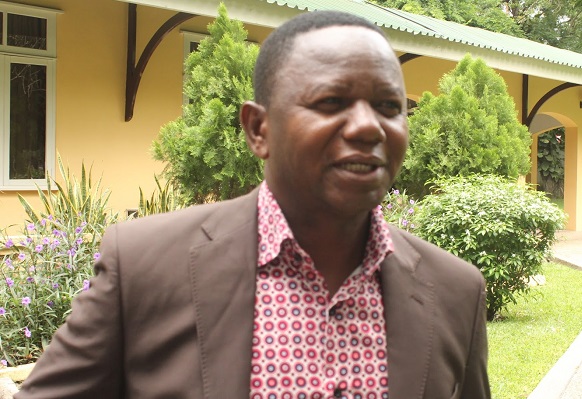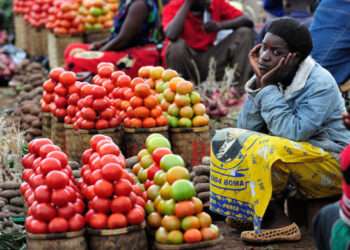The Deputy Minister for Food and Agriculture, Mohammed Hardi Tuferu, has admitted that prices of food are soaring in the country but assured Ghanaians that food prices will become stable by September this year. According to him, the current hike in food prices is seasonal and would be brought under control once harvesting begins in August.
“Around this time every year, prices go up because April, May, June, July is the planting season in both north and south of the country and eventually, food becomes very scare around this time of the year. In spite of the high prices, some food stuffs are available, especially yam, whose prices are very low.
“But if you compare it to maize, it’s a big problem. But it is our hope that once the new produce begins to be harvested, by end of September, October prices will stabilize because we are going to have a lot of foodstuffs in the market. Talking about prices, the ministry will agree that prices are quit high in the market.
“…It’s a cyclical thing; It’s just unfortunate that last year, we had some bad weather in the middle and southern belts, so, it affected the output in these areas. So, we are hoping that the harvest will be good so that prices will come down”.
Buffer stock
Speaking on the Business Edition of PM Express on Thursday night on “the state of Ghana’s food security”, Mr. Tuferu indicated that the buffer stock is being managed in a manner that will ensure that they do not run out of food totally before the new crops are harvested.

Meanwhile, since the situation is seasonal, it means that same time next year prices of food will go up again as such the Deputy Minister highlighted some of the things the government is doing to address this issue.
According to the minister, the government is working around the clock to make sure that some of the warehouses in the country are completed and handed over. He assured that by the time of harvesting, there will be enough space to store the produce to reduce post-harvest losses.
Planting for food and Jobs
Touching on the government’s flagship program, the Planting for Food and Jobs (PFJ), Mr. Tuferu explained that the strategy is to equip smallholder farmers with the necessary inputs to increase yields. According to him, once more and more smallholders are rolled onto the program, the expectations are that yields will increase and food will become abundant.
Meanwhile, suppliers under the PFJ are complaining that the government is yet to pay them for the supply of inputs. Responding to this, the Deputy Minister indicated that his Ministry is engaging with the Finance Ministry to release the funds for suppliers to be paid as soon as possible. He however, could not give the specific time that the suppliers will be paid.
With regards to irrigation, the Deputy Minister indicated that irrigation should be the last thing that must be considered in the short term as the country tries to ensure food security. He noted that he wished irrigation is available in almost all parts of the country but “irrigation is very expensive to even construct and manage”.
Hope must be backed by scientific evidence
However, Mr. Edward Kareweh, General Secretary of the Agriculture Workers Union, who also joined the discussions via zoom critic the arguments put forward by the Deputy Agric Minister.

“So, if you are saying by September things will be okay without telling us concretely what policy changes you are making to ensure that what has bedeviled us today will not come subsequently, other than hope, I have a problem with that. Hope must be backed by scientific evidence. We want to know whether the current policy framework would be structured in such a way that it would improve upon its delivery capacity as against what we have already seen.
“If more and more farmers rolling onto the program is a solution to addressing the food challenge in this country, then of course this year, we should not have been having food shortage because if you take the 2020 farmer population that has been put on the PFJ, that number is bigger than the previous one. So, if by increasing the number is a solution then, this year should have been better”.
In a nutshell, Mr. Kareweh suggested that the PFJ strategy needs to be modernized to account for the future because “probably, it has worked in the past but has reached its limit now”. Also, he urged the government to look at how to deal with the food crises beyond the harvesting season.
Meanwhile, another panelist on the program, Francis Danso, Content Manager of Esoko Ghana, noted that the PFJ focuses solely on production without considering other aspects of the value chain. He therefore, urged the government to come up with a novel solution to address the seasonal shortage of food in the country by considering the entire agriculture value chain, especially storage.
READ ALSO: About 57% of registered taxpayers do not file returns – GRA





















